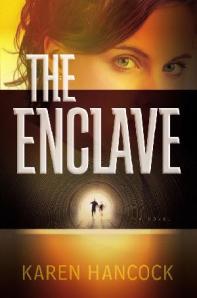As I mentioned yesterday, in light of this being the last week that the first volume of my Guardian King series, The Light of Eidon will be offered free as an e-book by various vendors, I thought I’d pursue a theme of putting up some posts about the book.

In a previous post, I related that the inspiration for the series sprang from my seeing the very first Star Wars film (A New Hope) – which, like a lot of other people, I fell in love with – coupled with spiritual truths I was learning from a Bible study book by Col R. B. Thieme, Jr, called The Christian Warrior.
In Star Wars, I especially loved the idea of the hero’s journey from weakness to strength, the light sabers, and the concept of The Force, which at the time seemed like a great metaphor for the Holy Spirit.
Especially in light of The Christian Warrior, which explores the biblical subject of warfare, both temporal and spiritual, using the template of a Roman soldier as a metaphor for exploring, defining and illustrating comparable qualities, preparations and experiences for the Christian soldier. (“Suffer hardship with me, as a good soldier of Christ Jesus. No soldier in active service entangles himself in the affairs of everyday life, so that he may please the one who enlisted him as a soldier.” 2 Ti 2:3,4)
Major chapter headings include Temporal Warfare, The Cause for Warfare, Jesus Christ Controls History, The Principles of Warfare, Military Metaphors in Scripture, Paul’s Contact with the Roman Military, The Roman Soldier in Paul’s Day, Roman Decorations and Surpassing Grace Rewards, and so on.
Toward the middle of the book Col Thieme discusses the equipment we’ve been provided as Christians for the conflict, itemized in Ephesians 6: the belt of truth, the breastplate of righteousness, the shield of faith, the helmet of salvation, the sword of the Spirit.

I loved the idea of the filling of the Spirit providing the light for the sword, something that might come and go depending on whether the soldier was in fellowship at any given moment. So that’s where I started.
The Bible teaches that our warfare in this age is invisible. We cannot see our real enemies, the fallen angels, nor do we see the Holy Spirit, indwelling all believers, nor Risen Christ, seated at the Father’s right hand.
Like them, if we actually learn to put on our armor, take up sword and shield to enter the conflict, we will be “Invisible heroes”. Which may be one reason why I am so drawn to many of the superhero stories: they often have a mild-mannered persona that leads most people upon meeting them to discount them – eg, Superman’s Clark Kent, Spiderman’s Peter Parker, Batman’s Bruce Wayne.
I see in them a perfect metaphor for the Christian soldier, who is among the “not many wise according to the flesh, not many mighty, not many noble” of 1 Cor 1:26. Like them we are “unknown but well-known” (2 Co 6:9). Unknown to most of the world, well-known to those we fight and those we fight alongside. And the angels who are watching us.
So I wanted that element in the story as well — someone who is perceived as weak by all, turning out to be not so weak after all. Especially as he uses the power of God. Thus I would to tell the story of a man moving from weakness to strength, both physically and spiritually, and at the same time illustrate the entire trajectory of the Christian life, as well… chronicling the coming to faith in Christ, (or in this case Eidon,) then growing through the three stages of the spiritual life: babyhood, adolescence and finally maturity. Which is the ultimate of going from weakness to strength.
I was green enough, and deluded enough to think I might accomplish all that in a single book!
Somewhere toward the end of writing the first draft of what is now The Light of Eidon, I realized that was not going to happen. And even though trilogies were all the thing at the time, I had to settle for a tetralogy. The Light of Eidon would be Abramm’s journey to Eidon himself, as well as being molded into a hero strong enough to fulfill the destiny Eidon had for him.
In the five-year gap that occurs between The Light Eidon and The Shadow Within, I skipped over his baby phase and moved right to the end of that stage where he takes the first step of walking into his destiny… in this case, contesting his younger brother for the crown of the land that Abramm should rightfully wear.
Shadow over Kiriath brings him through spiritual adolescence and The Return of the Guardian King embodies the evidence testing, as Col Thieme called it, of the mature believer. By which he meant the believer’s ability through spiritual growth to reach a place where he can be deliberately tested by Satan as to just how far he will trust God, how much will he stick with what God’s word says. This is illustrated by Job’s experience and Jesus’s own testing in the wilderness by Satan in Matt 4– though Abramm’s testing is more like Job’s than Jesus’s.)
It was all so nice and tidy when I outlined it. Trying to put flesh on the outline was something else entirely, far more messy and complicated than I ever could have dreamed.
Looking back, I should have known it was going to take a long time. You can’t write about a journey like that without living at least some of it. The funny thing, at least for me, is that “maturity” always seems like something off there in the future. The end of the story doesn’t really end until you’re dead. Or “promoted” as I like to think of it.
Col Thieme called it a “Permanent Change of Station.” I like that, too.
In any case, I originally had ideas for Abramm’s death, for his sons to carry on, for the Dorsaddi to return…
If we stick around as a nation long enough, and I finally manage to finish my current WIP, I’d like to go back to Abramm’s world and tackle that. But we’ll see what the Lord has in mind.
Again, if you’d like to try out the first volume of my Guardian King series, as a free e-book, click HERE.
Like this:
Like Loading...







